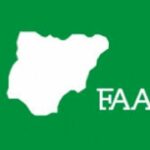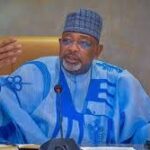Executive Secretary of National Commission for Mass Literacy, Adult and Non-Formal Education, Prof. Simon Ibor Akpama, has disclosed that the extant statistics of 2022 based on estimations captured Nigeria’s non-literate population to be about 31 per cent of the total estimated population of non-literate Nigerians, adding that this shows a significant reduction from the previous statistics of 38 per cent non-literate Nigerians in 2015.
Prof. Akpama said despite the commission’s challenges of paucity of funds, inadequate facilities, dearth of qualified personnel, and inadequate motivation of facilitators, the commission has made giant strides in its dogged determination to enhance the delivery of quality literacy services.
‘Over 900 new non-formal education centers opened in North East’
Speaking in an event to mark the 2022 International Literacy Day in Abuja, recently, with the theme, “Transforming Literacy Learning Spaces: Exploring the opportunities, Possibilities and Creativity,” the executive secretary said the commission has been rejuvenated, repackaged and rebranded, which culminated in the reduction of illiteracy rate as well as reduction of unemployment.
While noting that the essence of the theme is to enable them to rethink the importance of literacy learning spaces as a requisite for building resilience and to ensure equality, equitable and inclusive education for all, he said it is also germane to the thrust of NMEC’s programmes with ardent and uncompromising focus on adequately meeting the fluid and dynamic learning needs of our teaming Nigeria youths and adults in their divergent socio-economic contexts.
He however maintained that novel opportunities and possibilities which create pathways for creativity and innovation must be considered and warmly embraced in such a manner that literacy programmes and contents must be rebranded and reorganised in response to these ever dynamic and fluid learning needs of learners.
The NMEC boss, who noted that Nigeria is still grappling with the consequences of the out-of-school syndrome which provokes high illiteracy rates among Nigerian youth and adults, said COVID-19 pandemic exacerbated the problems of its programme implementation giant strides on mass literacy, adult and non-formal education and constituted palpable setbacks.
He said the ugly trend culminated in a quantum of quantifiable learning losses and unabated dropouts particularly in the non-formal education sub-sector.
The executive secretary explained that apart from formal education, the commission also trains the beneficiaries on skills acquisition and upon graduation, they are given starter packs which serve as economic empowerment.
He said, “The Literacy enroute Economic Empowerment Strategy (LEES) is a major poverty eradication strategy as it seeks to juxtapose acquisition of basic and post-literacy skills with vocational literacy skills acquisition for the attainment of economic self-reliance of the beneficiaries.
 Join Daily Trust WhatsApp Community For Quick Access To News and Happenings Around You.
Join Daily Trust WhatsApp Community For Quick Access To News and Happenings Around You.


